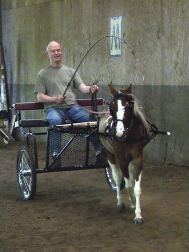
Theresa Cameron
Perserverance and Imagination
Posted by Jun 24, 2011

Theresa Cameron
Perseverance and imagination.
These are two words that successfully describe what rural and small arts organizations continually do.
I was once again reminded of this first-hand as I listened to the rural and small arts organization peer group discussion at our Annual Convention in San Diego last week.
It’s been a few years since Americans for the Arts held a rural and small local arts agencies gathering and attendees were excited to talk to, and learn from, each other.
Read More















